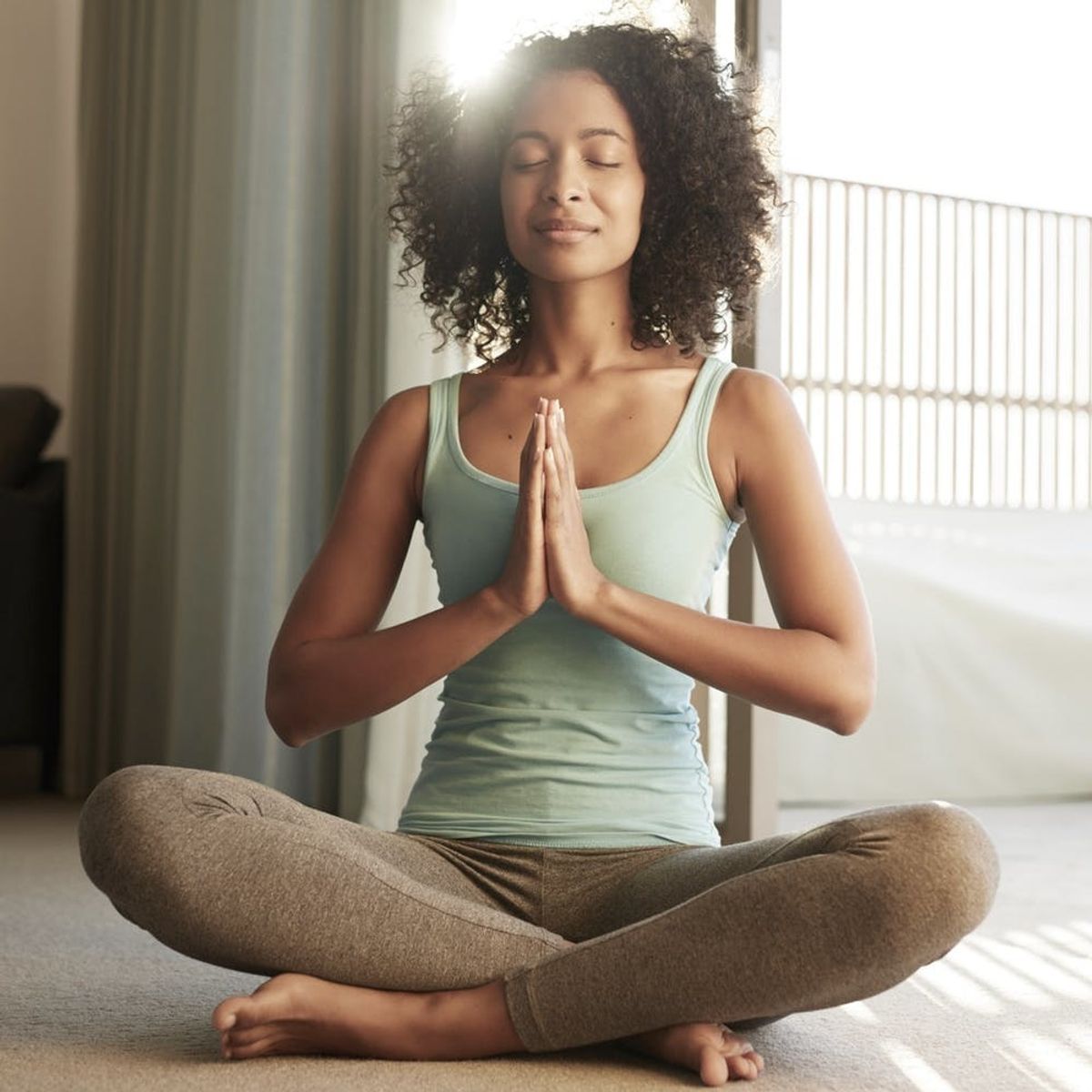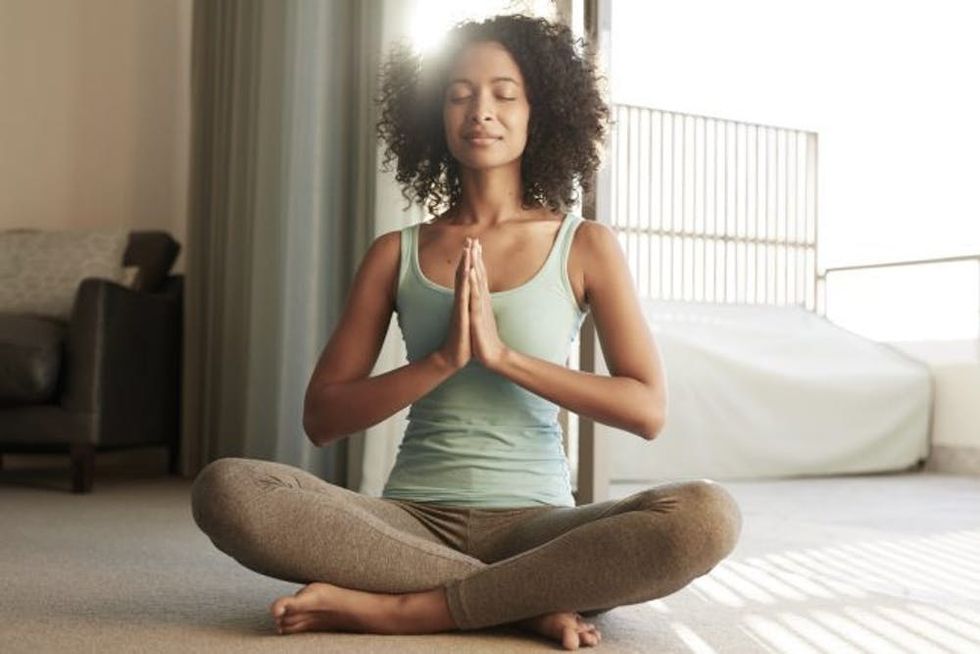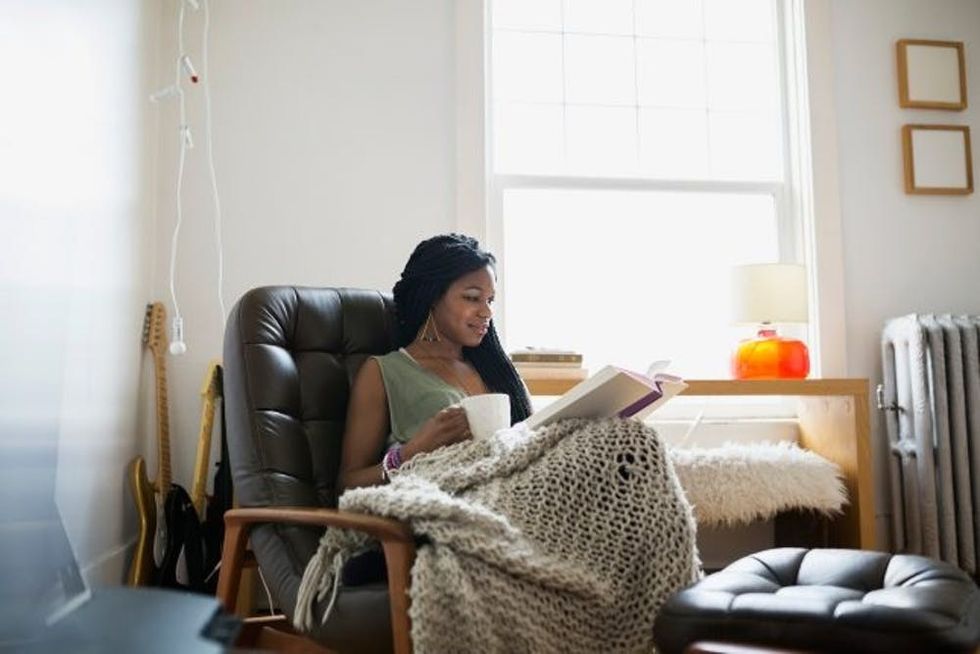Nama-stay sane!
5 Self-Care Tips That Will Have You Feeling Zen in No Time

Lately, it’s become obvious that self-care is a radical political tool; as women, it gives us permission to prioritize our inner zen when so many people are looking to dismantle our autonomy on the regular. But fighting anxiety and finding calm doesn’t necessarily mean simply charging a facial and skipping out on our responsibilities. So what’s the difference between self-care and treat yo’ self? We chatted with Douglas Baker, a holistic therapist who focuses on meditation, yoga, and counseling as an integrated wellness philosophy at his practice, Cambridge Mind Body, to give us some serious insight into what the phrase really means and what IRL things we can do to get on that self-care train.

okay, so what is self-care exactly?
1. It’s a collective shift in consciousness. And it’s one Douglas has seen in his own practice. People are seeking out peace of mind with the same energy they used to reserve for climbing the corporate ladder. Douglas says that people are “are understanding that they have a proactive role to play [in self-care] and they can take charge of their level of wellness, both mentally and physically.”
And as for how Douglas defines self-care? He says it’s a process that starts with “learning — about how stress works, or how foods affect us, or exercise, or meditation — and then beginning to take those actions.” He says the positive results from taking these self-care actions can be either physical, like exercise, or more mental, like learning to accept the things we can’t control.” He definitely suggests yoga as a self-care tool, since “yoga has been called a unified theory of everything — especially how the mind and body work, and how we learn to live more fully alive, more skillfully, in a more open and resilient way.” Sign us up for that 8am yoga class!
2. Be balanced with your self-care. “Anything can be misused, even meditation,” Douglas says. Say what? He sets the scene: “If you’re meditating three hours a day, what part of your life are you not showing up for?” He explains that self-care is meant to be a “set of insights and guidelines” and that “perfectionism is another form of disease.” So be careful not to set rigid self-care rules for yourself so that you’re missing out on a friend’s birthday because you’re going to yoga for the tenth time in a week.
3. Just because you self care, doesn’t mean you can’t be sad. Douglas reminds that self-care is about really feeling your full range of feelings, even if those feelings are scary or sad (and often because they’re scary and sad). He explains, “Self-care is often uncomfortable, like when we get the courage to not answer a work email late in the evening.” In fact, he says that “Self-care is again partly about building resilience — the ability to be present with our full, complicated, messy self, our complex life.” So don’t get frustrated if your self-care sessions don’t leave you feeling like you’re blissed out on a beach. Self-care can be work, and it’s important you put in the time.
4. Sometimes self-care means asking for help. Even for all the yoga, bubble baths, and long runs in the world, there are still sometimes that we can’t self-care our worries away. Douglas reminds that “part of self-care includes the idea that we may sometimes need to ask for help and support,” and that asking for help — whether it’s from a counselor, friend, or mentor — “is the wise thing to do.” Douglas explains that while we sometimes think not asking for help is a sign of strength, it’s actually “a sign of self-judgement, too high expectations, or stubbornness.” There’s no shame in seeking support when you need it. Douglas says to “just ask, say thank you, and be grateful when it’s available.” Oh, right — it can be that easy!
five simple self-care acts

1. Focus on the positive. Douglas suggests making a mental gratitude list every morning for things like having access to clean running water. He says that we tend to “get overly focused on what’s ‘wrong’ and gratitude brings more optimism and balance to our world view.”
2. Relllaaaxxx. Even if you’re sitting in an office chair at work, take a moment a few times a day to notice any tense muscles and “invite them to soften. Take one deep inhale and exhale as you release,” Douglas suggests. It’s like a mini massage at your desk.
3. Get deep — like, real deep. Finding ways to remember the bigger picture will help put things into perspective, Douglas says. “Think of the images of the Earth, floating in a vast space, with billions of people living and dying;” this simple thought exercise will reconnect you to the universe and emphasize a feeling of oneness.
4. Drop the digital habit. At least briefly! We all know that obsessively scrolling Instagram and repeatedly checking Facebook is bad for our self-esteem. Douglas suggests taking a walk, running an errand, or going to dinner without your phone (quelle horror!). He says “allow yourself to miss a few texts and phone calls — unplugging brings balance and allows the nervous system some R&R.”
5. Savor your mealtime. “Pause for 10 seconds before you start to eat to consider the many hands who brought it to your table,” Douglas says. He also suggests putting your fork down throughout the meal between bites so you intentionally slow down the process of consuming.
What are some of your favorite self-care acts that don’t cost a thang? Tweet us @BritandCo and tell us what you do to recharge!
(Photos via Getty)


















